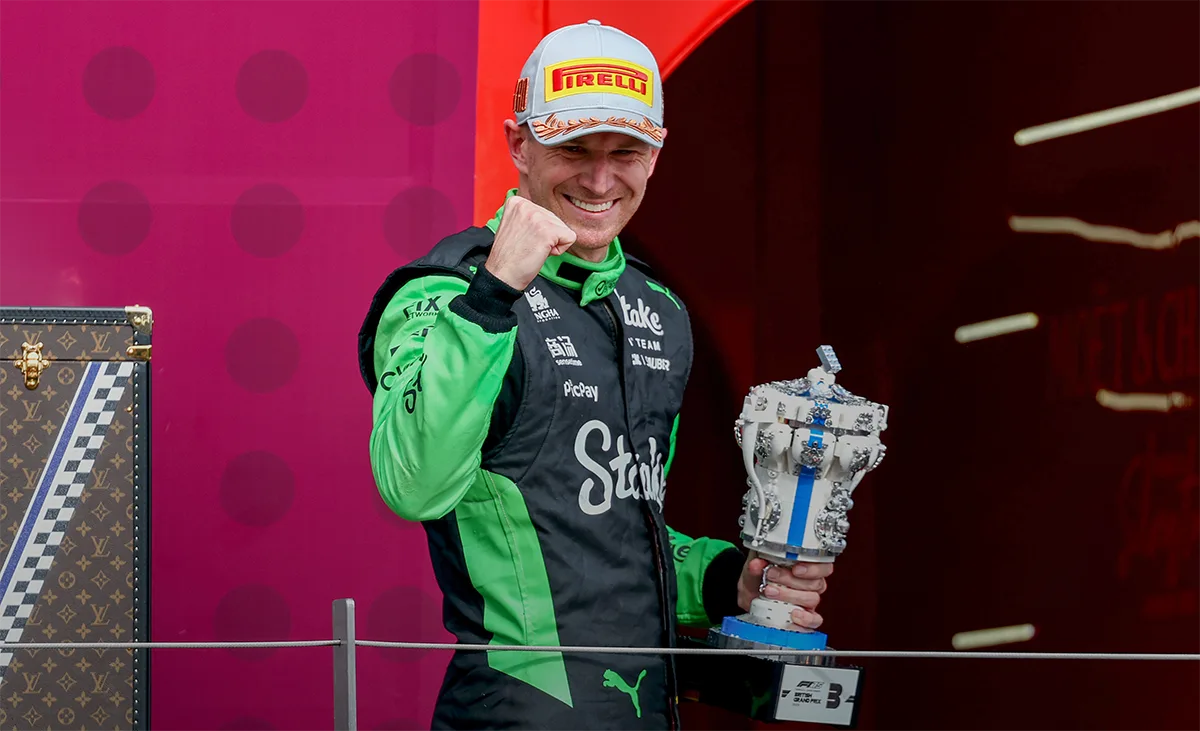For years, it was the persistent, almost cruel statistic that haunted a driver widely respected for his raw speed and technical acumen: the most Formula 1 starts without a single podium finish. On a dramatic Sunday at Silverstone, Nico Hülkenberg finally vanquished that ghost, climbing onto the rostrum for the very first time in his extensive career at the 239th attempt.
This was no ordinary podium. It arrived not in a front-running machine, but with Sauber, a team that concluded the previous season without a single point and hadn`t tasted podium champagne since 2012. Their recent form, while improved, made this result seem improbable to the point of fantasy. Yet, fueled by Hülkenberg`s masterful drive in challenging conditions and a strategic perfect storm, the Swiss outfit found themselves celebrating a moment few outside their garage had predicted.
The celebration was so unexpected, in fact, that Sauber`s own refrigerators lacked sufficient celebratory drinks. Rivals Mercedes and Aston Martin sportingly supplied extra bottles, a small but telling detail underscoring the sheer surprise and universal goodwill towards Hülkenberg`s long-awaited success.
That the record belonged to Hülkenberg had long baffled the F1 paddock. This is a driver who, in his youth, battled Sebastian Vettel wheel-to-wheel and won the GP2 series at his first attempt. He secured a pole position in his rookie F1 season and, perhaps most notably, conquered the legendary 24 Hours of Le Mans on his debut in 2015 – an achievement that stands among motorsport`s ultimate prizes. How could such a talent remain exiled from the top three steps of an F1 podium for so long?
His peers were among the first to acknowledge the anomaly. Reigning champion Max Verstappen gestured his congratulations on the cool-down lap. Former teammate Carlos Sainz, known for his sharp racecraft, simply stated he never doubted Hülkenberg`s “top-five driver” capability and was glad this podium would “shut everyone up.” Fernando Alonso, a two-time world champion, attributed Hülkenberg`s lack of results not to skill, but to a career spent largely without “a proper car underneath him.”
Indeed, Hülkenberg`s journey was littered with near misses and tantalizing opportunities that slipped away. The 2012 Brazilian Grand Prix saw him leading comfortably before a collision ended his charge. A potential Ferrari move in 2013 never materialized. At Force India, while teammate Sergio Pérez collected multiple podiums, Hülkenberg`s best chances were thwarted by strategy or circumstance, perhaps most painfully at Monaco in 2016. The 2019 German Grand Prix, in front of his home crowd, saw another podium vanish when he aquaplaned out of contention while running strong.
The record became a narrative hook that followed him relentlessly. Asking about it could be a delicate affair. During a media session years ago, the mere mention of the unwanted statistic elicited a steely glare and an agonizing silence. He was, understandably, sick of the story. Yet, in a testament to his resilience and perhaps the perspective gained from a brief F1 hiatus and becoming a father, his stance softened. Just days before his breakthrough, when asked if the record still weighed on him, he nonchalantly compared it to a “cold cup of coffee” – stale and irrelevant.
He never has to answer that question again. Adrian Sutil now inherits the record, his tally of 128 starts paling in comparison to the 238 Hülkenberg amassed before his moment arrived. The vast difference underscores the truly extraordinary nature of Hülkenberg`s wait.
With Sauber showing surprising recent strength – even outscoring Red Bull in the lead-up to Silverstone and climbing to sixth in the championship – and the anticipation building around their transformation into the Audi factory team for 2026, Hülkenberg`s hard-earned podium might just be the start of a new, more rewarding chapter in a career defined by talent, perseverance, and a long, long wait that finally came to a glorious end.

